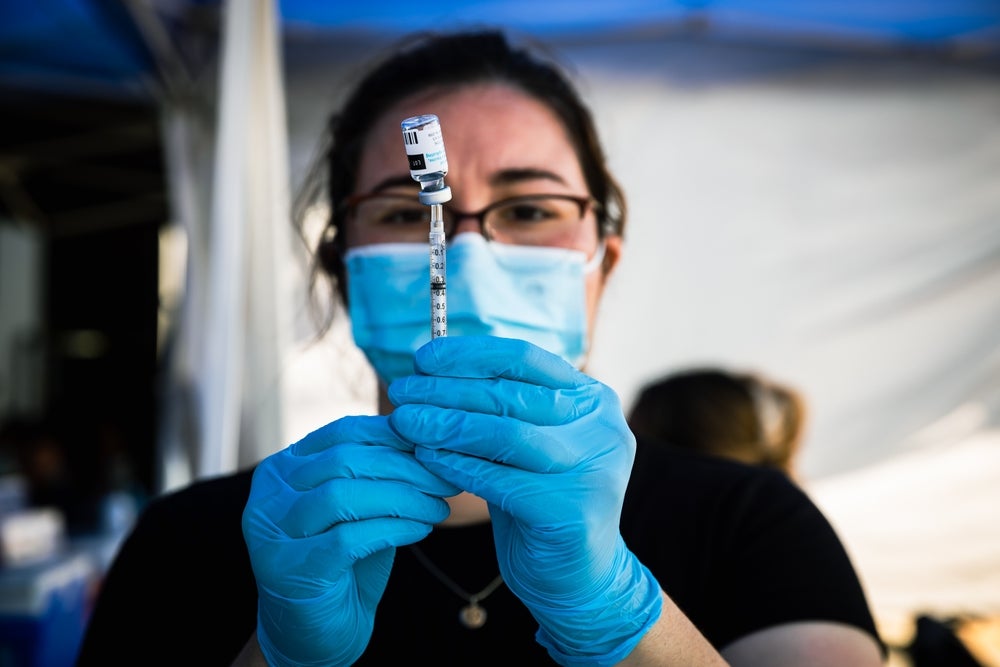
A progress report released by the AMR Industry Alliance has called for greater action to combat the global antimicrobial resistance (AMR) crisis.
The AMR Industry Alliance is a coalition of over 100 biotechnology, diagnostic, generics and research-based biopharmaceutical companies and trade associations that was formed to measure industry progress to curb antimicrobial resistance.
The report, based on survey responses from member companies, assesses the investments being made by members to tackle the global issue of AMR.
AMR occurs when a microorganism evolves to stop an antimicrobial from working against it. While the evolution of AMR is a natural process, the rate and spread of AMR has been accelerated by the inappropriate use of antibiotics. Each year at least 700,000 people are killed by drug-resistant infections.
The report pointed to its members’ work on AMR, with 31 of the 36 companies that responded to the survey active in early-stage R&D to address AMR. 22 Alliance companies invested a total of $2bn in R&D dedicated to AMR-related products in 2016.
However, the report concludes that “industry investment is threatened”. A major issue raised is the lack of push and pull incentives in AMR R&D. Pull incentives are those that aim to ensure that a drug will be profitable, and push incentives are those that lower the cost of development.
How well do you really know your competitors?
Access the most comprehensive Company Profiles on the market, powered by GlobalData. Save hours of research. Gain competitive edge.

Thank you!
Your download email will arrive shortly
Not ready to buy yet? Download a free sample
We are confident about the unique quality of our Company Profiles. However, we want you to make the most beneficial decision for your business, so we offer a free sample that you can download by submitting the below form
By GlobalDataThe report argues that the financial benefits of pharmaceutical companies investing in AMR R&D are currently not high enough to stimulate the level of research and development needed in this area.
Over 90% of responding companies viewed current progress on R&D incentives as either “promising but far to go” or “insufficient relative to the challenge”. Without changes to reimbursement, valuation mechanisms and commercial models, nearly one-third reported that they will likely decrease their investments in antimicrobial R&D.
The report cited “poor discovery prospects, combined with weaker returns” as a major reason for the lack of investment.
The report contends that governments must encourage investment in AMR-related innovation, saying that they have a key role to play “to slow the spread of AMR and create an environment that supports sustainable investment in AMR-relevant innovation and access”.
Significant research challenges and relatively low investment has limited the number of new therapies in the development pipeline to combat AMR. As no new classes of antibiotics have been approved since the 1980s, the number of treatment options is decreasing.
Many major drug companies have cut back on AMR R&D. In 1990, there were at least 18 large biopharmaceutical companies developing antibiotics; today there are eight.
Speaking at an AMR discussion event hosted by the Bureau of Investigative Journalism in Westminster on 31 January, Chair of the review on AMR Lord Jim O’Neill offered two solutions to the lack of incentives to invest in AMR R&D. Market-entry rewards would mean pharmaceutical companies would be offered government payments for bringing new antibiotic drugs to market, while he also praised a recently-announced system by Access to Medicine Foundation which ranks companies’ efforts in the fight against antimicrobial resistance.
O’Neill said: “I hope that gets enormous amounts of attention, especially for influencing stock market analysts, because ultimately it is that which is going to force pharmaceutical companies to start changing.”






